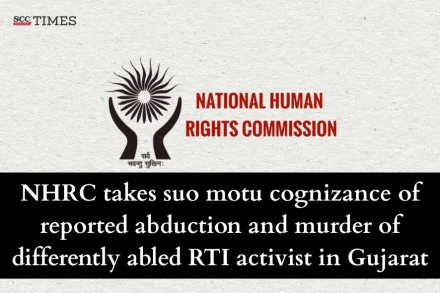
NHRC takes suo motu cognizance of reported abduction and murder of differently abled RTI activist in Gujarat
The NHRC issued notice to the State DGP, calling for a detailed report on the matter within two weeks.

The NHRC issued notice to the State DGP, calling for a detailed report on the matter within two weeks.
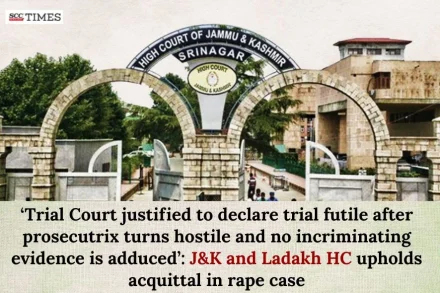
“The prosecutrix is not an accomplice but rather the victim and the sole injured witness of the assault, and thus her evidence assumes great evidentiary value. But where she declines to identify the perpetrators, she is either a consenting party, or the persons being tried are not the actual perpetrators.”
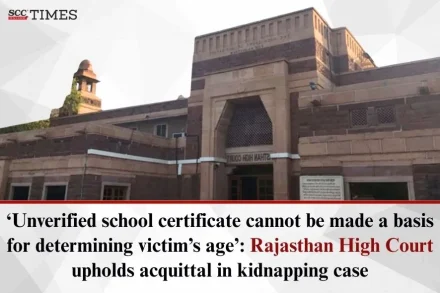
“To convict the accused under Section 363 IPC, two things are to be established beyond reasonable doubt, one that she was below the age of 18 years and other would be that she was taken away from her lawful guardianship without consent of the guardians.”
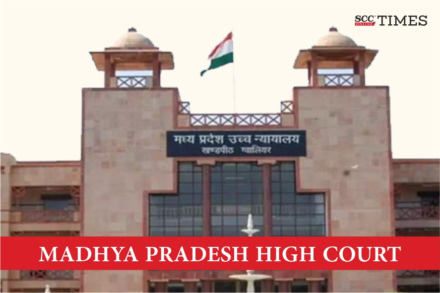
The Court reiterated that heinous offences and crimes against society cannot be quashed merely on the basis of compromise.
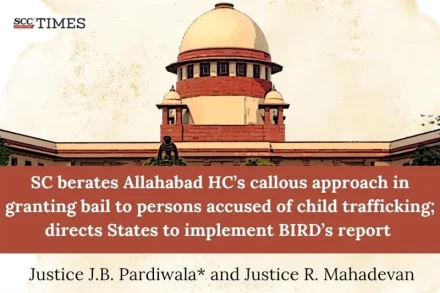
“If any newborn infant is trafficked from any hospital, the immediate action against the hospital should be suspension of licence to run the hospital over and above other actions in accordance with law”.
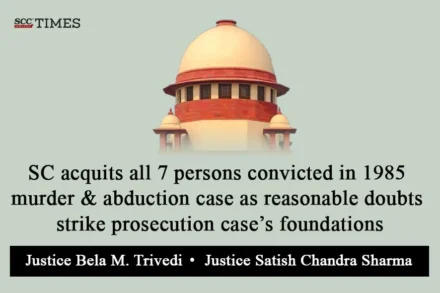
The Court emphasised that in order to reverse a finding of acquittal, a higher threshold is required. The presumption of innocence operating in favour of an accused throughout the trial gets concretized with a finding of acquittal by the Trial Court.
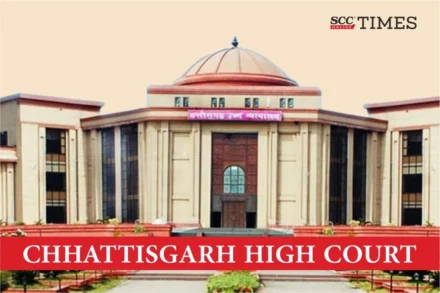
The Court stated that this is not a case of ransom because the appellants had not called the complainant’s wife to pay ransom, and it is possible that they were planning to receive the rest of the amount of the vehicle from ‘X’.
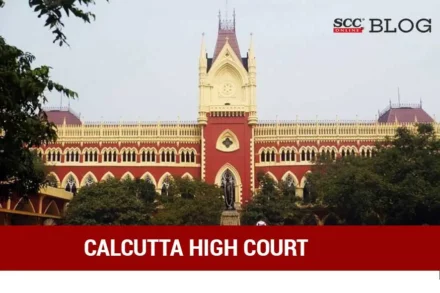
Calcutta High Court concurred with the trial court’s decision to acquit the accused under Section 366 of IPC due to absence of evidence supporting sexual assault.

The present case confronts the situation where the father of the minor child had fortunately found his daughter who came back to the fold of his lawful guardianship, but not without facing hardships and stress as he did not know the progress of the case.

The accused had failed to demonstrate any illegality in the impugned judgment convicting them for the offences of kidnapping, abduction, and gang rape.

The Supreme Court in State of M.P. v. Shyamsunder Trivedi, (1995) 4 SCC 262 observed that, it would be police officials alone who can only explain the circumstances in which a person in their custody had died.
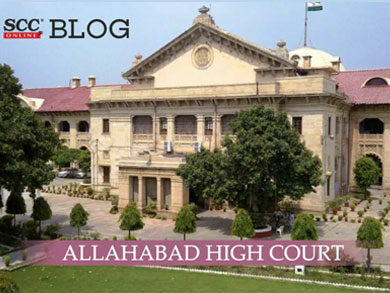
“It is not the duty of the police officers to kill the accused merely because he/she is a dreaded criminal. Undoubtedly, the police must arrest the accused and put them up for trial”.
Chhattisgarh High Court: Deepak Kumar Tiwari, J., held that, when the accused has not played any active role or persuaded the victim
Kerala High Court: R. Narayana Pisharadi, J., held that passive submission made by the victim under unavoidable circumstances as she had no
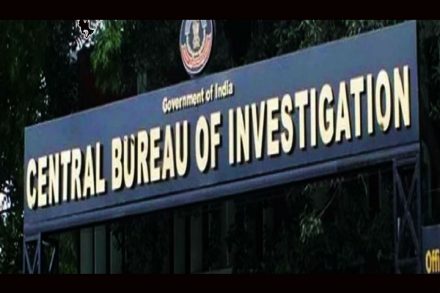
Central Bureau of Investigation (CBI): Shivank Singh, Special Judicial Magistrate (CBI), while accepting the closure report questioned the delayed investigation by the
Allahabad High Court: Dinesh Kumar Singh, J., allowed an application of anticipatory bail in connection with the FIR registered for the offences

Supreme Court: In a reference from a 2-judge bench verdict where Justice V. Gopala Gowda acquitted and Justice Arun Mishra convicted the
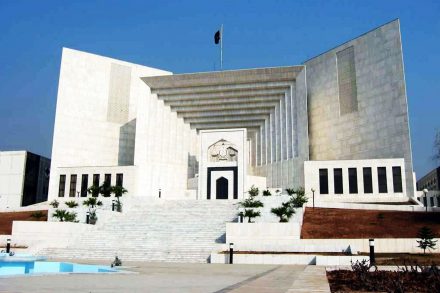
Supreme Court of Pakistan: A Division Bench of Asif Saeed Khan Khosa, C.J. and Syed Mansoor Ali Shah, J. in the current
Delhi High Court: Mukta Gupta, J. dismissed an appeal filed by the appellant against the judgment of the trial court whereby he was
Meghalaya High Court: A Bench of Mohammad Yaqoob Mir, C.J. and H.S. Thangkhiew, J. set aside the conviction and sentence inflicted upon the